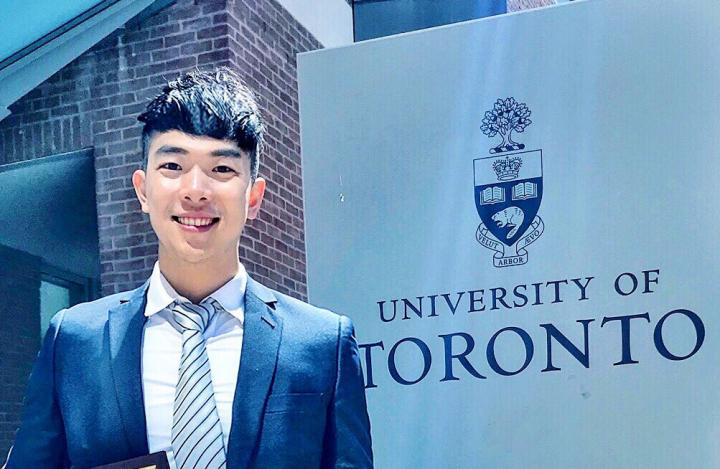Disadvantaged Black and South Asian immigrants and Indigenous populations are nearly four times more likely to have multiple pre-existing medical conditions that increase the risk of acute response to the coronavirus

Credit: University of Toronto
Black, South Asian and Aboriginal populations from disadvantaged socioeconomic backgrounds in Canada are nearly four times more likely to have three or more medical conditions that have been identified as risk factors for severe illness from COVID-19.
Shen (Lamson) Lin, a doctoral candidate in gerontology and course instructor at the University of Toronto’s Factor-Inwentash Faculty of Social Work and Institute for Life Course and Aging, compared 1,102 racialized immigrants and 338 Aboriginal Canadians with 23,802 Canadian-born Whites, aged 45 and older, using population-based data from the baseline Canadian Longitudinal Study on Aging (CLSA, 2012-2015). His findings were recently published in The Gerontologist (Special collection: Gerontology in a Time of Pandemic).
“We know that COVID-19 outbreak is not affecting everyone at the same levels, and the prevalence of multiple chronic conditions within an individual — known as multimorbidity — has also been linked to social inequalities for decades,” says Lin, the sole author of the study. “I was curious to explore how one’s family income, education levels and experience of racism and nativism — and the intersection of these three social standings — shape the health of aging populations.”
Lin’s study examined nine chronic conditions associated with an increased likelihood that one will experience severe illness due to COVID-19 infection, requiring hospitalization, intensive care and the use of a ventilator. These medical conditions include diabetes, asthma, cancer, previous heart attack or myocardial infarction, kidney disease, cardiovascular disease, hypertension, chronic obstructive pulmonary disease and obesity.
The odds of having three or more of these medical conditions was greater for Black and South Asian immigrants and close to double for Aboriginal populations in Canada, relative to Canadian-born Whites. Black, South Asian and Aboriginal populations from disadvantaged socioeconomic backgrounds (those without any post-secondary education and/or those who earned less than the median household income) had the highest odds of having three or more medial conditions.
The multimorbidity differences associated with these populations were enhanced for older adults (aged 66 to 85) compared to their middle-aged counterparts (aged 45-65). Among older respondents, Black immigrants were five times more likely and Aboriginal Canadians three times more likely to have three or more medical conditions.
“These observed health gaps illustrate various minority struggles that are often obscured within a discourse of multiculturalism and diversity” says Lin, “Given the lack of socio-demographic and race-based data in Canadian health systems, my study provides a timely frame of reference for public-health decision makers to reconsider measuring upstream health inequalities to mitigate the pandemic’s long-term societal harms.”
Additional risk factors for multimorbidity were identified. These included being male, experiencing chronic pain, having a physical impairment, living without partners, and a lifetime of smoking.
“Widespread chronic disease and racism in addition to the contemporary pandemic make living conditions more difficult for vulnerable older adults, especially those from racialized, immigrant, and impoverished communities,” says Lin. “With COVID-19 spreading globally, health equity should be placed at the center of all policy responses designed to mitigate the disproportionate impact of the pandemic on underserved aging communities.”
###
This paper is free to download as Oxford University Press has made COVID-19-related content accessible to the public.
Doi: https:/
For more information, please contact:
Mr. Shen (Lamson) Lin
Course instructor & Ph.D. Candidate (Gerontology)
Factor-Inwentash Faculty of Social Work
Institute for Life Course and Aging
University of Toronto
[email protected]
Twitter: @lamsonlinshen
(647) 230-6802
Media Contact
Shen (Lamson) Lin
[email protected]
Related Journal Article
http://dx.




